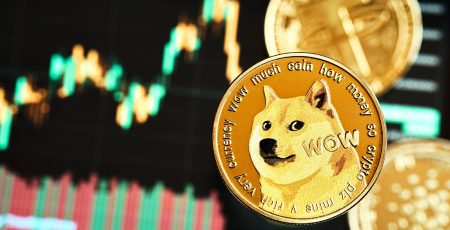Like Bitcoin and Ethereum, Dogecoin is also one of the top cryptocurrencies, although, it comes with a whole different vibe. Basically, Dogecoin was formed as a result of a mere joke, typically, a meme by crypto enthusiasts.
What is Dogecoin?
Dogecoin (DOGE) is a cryptocurrency that operates on a peer-to-peer, open-source network. Introduced in December 2013, it’s often categorized as an altcoin and sports the adorable Shiba Inu dog as its emblem. Derived from Litecoin, Dogecoin’s blockchain boasts commendable technology.
Bespoke aspects of Dogecoin include:
- Its use of the Scrypt algorithm (pronounced ess-crypt).
- It’s wallet-friendly price.
- It’s unlimited supply.
So, what is unique about Dogecoin? Elon Musk. He the mastermind behind Tesla and SpaceX, has a knack for turning the crypto world into his own playground, especially, Dogecoin. With a tweet here and a remark there, he’s like the pied piper for cryptocurrency, leading the market on a rollercoaster ride.
His words aren’t just tweets; they’re financial seismic events that shake up the prices and grab everyone’s attention. Move over, fortune tellers; we’ve got Elon and his X crystal ball predicting Dogecoin’s next move.
How Does Dogecoin Work?
The Dogecoin blockchain functions on a proof-of-work consensus mechanism. Miners employ computers to tackle intricate mathematical problems, facilitating the processing of transactions and their subsequent recording on the blockchain. In return for their role in sustaining the blockchain, miners receive additional Dogecoin, allowing them to either retain or trade it on the open market.
While Dogecoin is usable for transactions, it could serve as a more effective store of value. This limitation stems from the absence of a lifetime cap on the total number of Dogecoins that can be mined, resulting in a highly inflationary nature for cryptocurrency.
The blockchain generates millions of new Dogecoins daily to compensate miners for their efforts. This constant influx makes it challenging for speculative price increases in Dogecoin to maintain stability over a longer period.
Dogecoin vs Bitcoin
Ostensibly, Dogecoin is more of a lighthearted alternative to Bitcoin, sporting a Shiba Inu dog as its mascot as its informal and playful vibe resonated well with the emerging crypto community. Its utilization of the Scrypt algorithm and the availability of an unlimited supply made a case for a faster, more adaptable, and user-friendly counterpart to Bitcoin.
As opposed to the “deflationary” nature of Bitcoin, Dogecoin is considered an “inflationary coin.” Unlike Bitcoin, which has a capped limit on the total number of existing coins, Dogecoin doesn’t impose such constraints. Bitcoin undergoes a halving process every four years, reducing the mining rewards and its inflation rate by half until all coins are circulated. This sets Dogecoin apart as a cryptocurrency with a different approach to supply dynamics.
Is Dogecoin a Good Investment?
Since Dogecoin doesn’t have a limit on its total supply, and millions of new coins are added daily, there needs to be more incentive to hold it for the long term. Unlike Bitcoin, which gains value due to its capped supply, Dogecoin is designed more as a spending currency, just like DASH or Bitcoin Cash, according to White.
The historical value of Dogecoin per coin has been quite low, around $0.003 for much of 2020, making it more disposable for many. According to Grey, platforms like Reddit, X, and Facebook see users using Dogecoin to tip or reward each other for content.
All in all, Dogecoin is a cryptocurrency that operates on a peer-to-peer, open-source network and came into existence in 2013, initially conceived as a playful commentary on the world of cryptocurrency. The project’s charm lies in its technical aspects and the humour embedded in the community and development efforts, which likely contributes to its longevity compared to other cryptocurrencies.
Image: Adobe Stock
Disclaimer: This article is provided for informational purposes only. It is not offered or intended to be used as legal, tax, investment, financial, or other advice.









